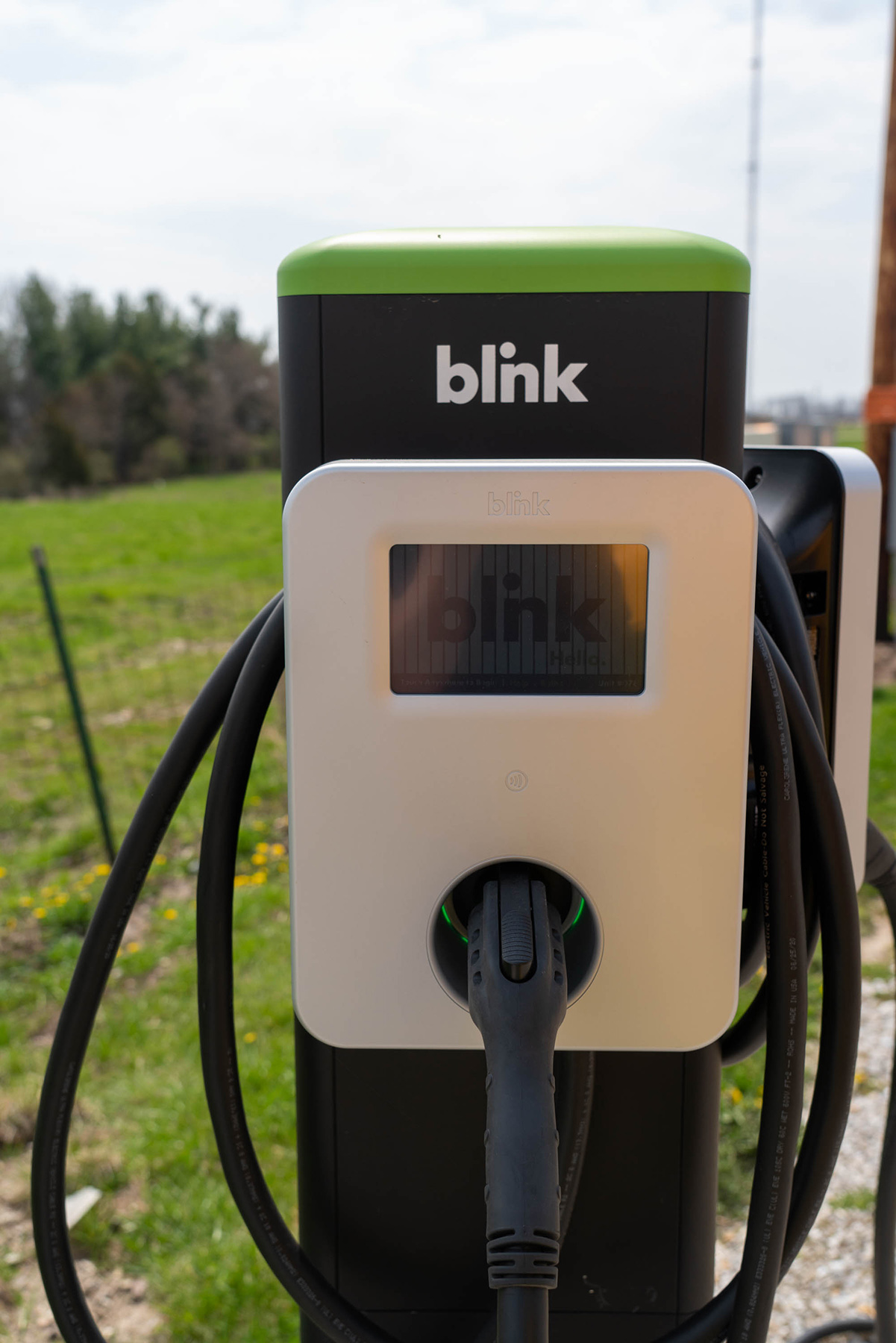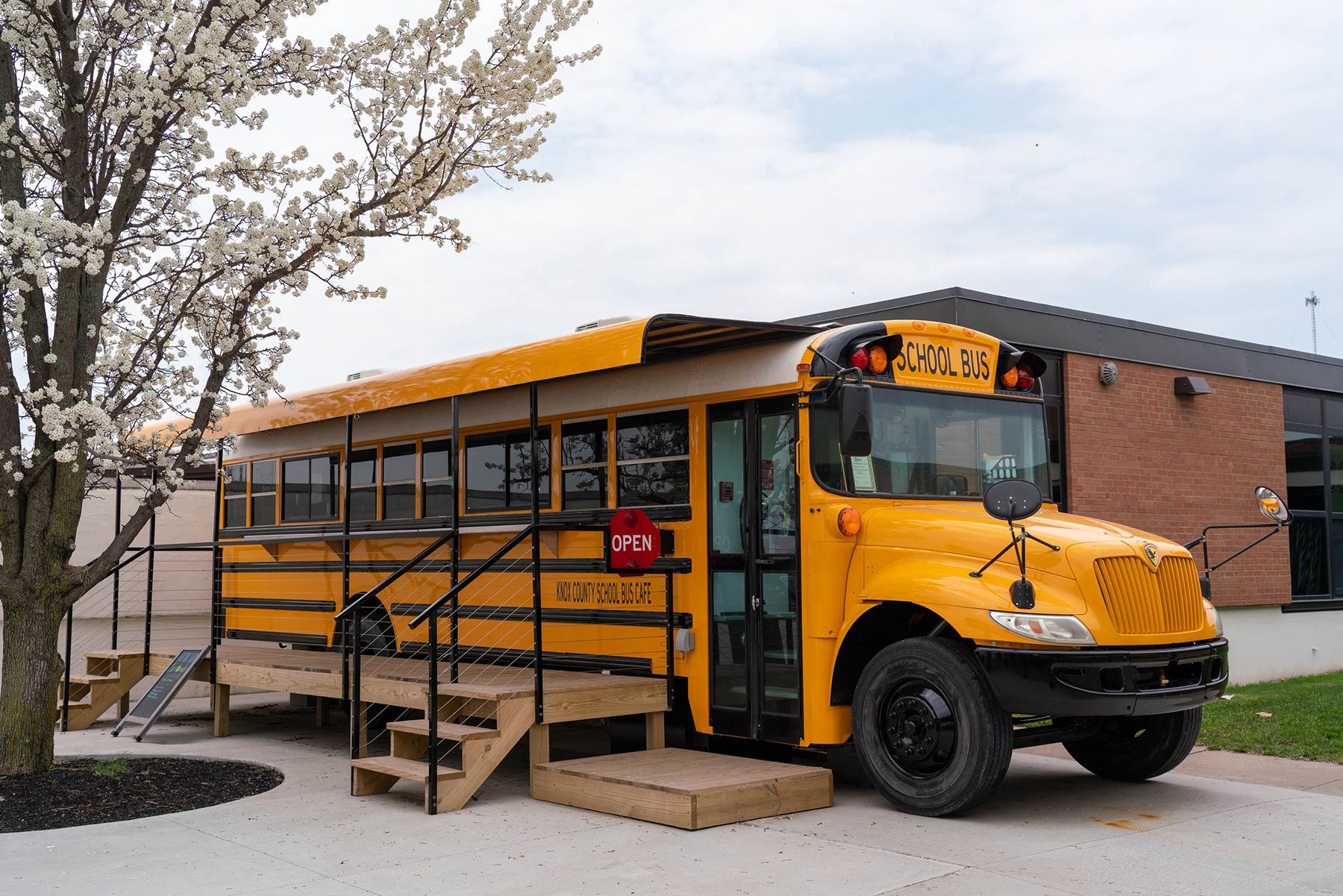A retired diesel school bus was converted by the Knox County School District shop class into a student-operated coffee shop.
MoDNR photo by Ben Nickelson
Published by
on
In 2017, the U.S. Department of Justice ordered Volkswagen to create a $2.9 billion Environmental Mitigation Trust as a penalty for altering vehicle emissions equipment. As beneficiaries of the trust, states received allocations to mitigate excess emissions created by diesel vehicles. Missouri was allocated $41 million for diesel engine and vehicle replacement projects.

The Missouri Department of Natural Resources’ Air Pollution Control Program developed the methodology for distributing these funds. To date, the program has awarded more than $39 million across the state.
Since 2018, the program has accepted applications to replace medium- and heavy-duty, diesel-powered vehicles. The different types of vehicles that are eligible for replacement include school and transit buses, trucks, emergency vehicles, tugboats, forklifts, construction equipment and locomotives.
Electric vehicle charging stations
In addition to diesel engine replacements, the Volkswagen Environmental Mitigation Trust is able to fund the installation of electric vehicle charging infrastructure. The program worked closely with stakeholders, including electric providers, equipment manufacturers, local governments, regional planning organizations and members of the public, to develop a statewide Minimum Practical Network of fast-charging stations. When complete, this network will include more than 40 sites along Missouri’s major highways. The goal is to allow any electric vehicle owner to drive anywhere in Missouri without worrying about running out of charge.
Of the planned Minimum Practical Network sites, 23 locations will receive funding through the Volkswagen Environmental Mitigation Trust. The first funding stage focused on 13 high-priority sites along the largest highways. At the end of 2021, funding for all of the first-stage sites had been awarded, and all were at various stages of completion.
In 2022, the program began the second stage of funding for the next 10 sites, which will increase the Minimum Practical Network’s overall coverage and connectivity. A map showing the stage 1 and 2 sites is available on the department’s Electric Vehicle Charging Station webpage. A list of sites and their respective estimated completion date is available in the Electric Vehicle Charging Infrastructure Category Project Status document.
The program plans to continue awarding engine, vehicle and equipment projects through the Diesel Emissions Reduction Act grant. With significant stakeholder support, the program is also using Volkswagen Environmental Mitigation Trust funding to match grant funds each year through 2027.
The department considers the reduction of more than 2,000 tons of nitrogen oxides emissions from Missouri’s roads and rivers to be a huge success and looks forward to future opportunities to improve air quality for Missouri’s citizens.
Out with the old, in with the new
Since Missouri’s Volkswagen Environmental Mitigation Trust was established, the department has provided funding to replace more than 350 school buses in more than 150 school districts. Many districts chose to replace their aging diesel buses with newer diesel buses, which by itself has tremendous impacts on the health and safety of students and drivers.
A few districts, however, have chosen to replace their diesel buses with zero-tailpipe emission electric buses instead. In total, six school districts have decided to invest in electric school buses. One such district is the Knox County School District, which has replaced four of its diesel buses with new all-electric vehicles.
From diesel fumes to coffee aroma
In addition to reaping benefits to public health and safety, the Knox County School District was able to turn one of its old diesel buses into a learning opportunity for students. The district’s shop and business classes worked together to turn the old bus into a stationary coffee shop. Students operate the coffee shop serving classmates, teachers, staff and parents before and after school. Students also are turning a second retired bus into a shop located near the football stadium, where students will sell school gear to raise funds for activities.




